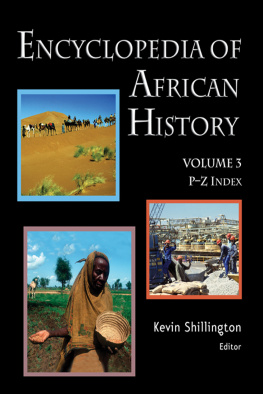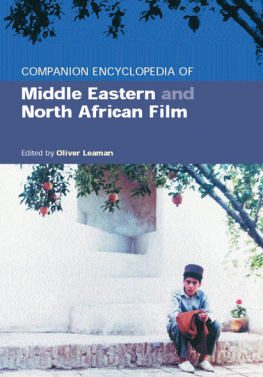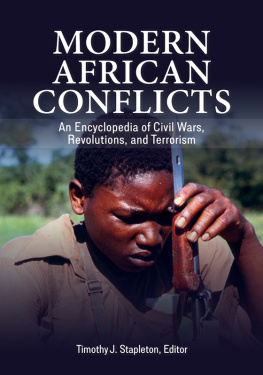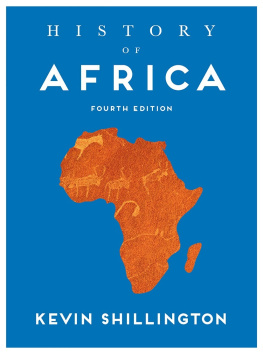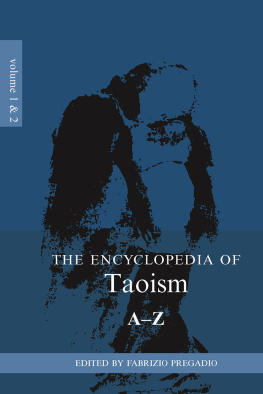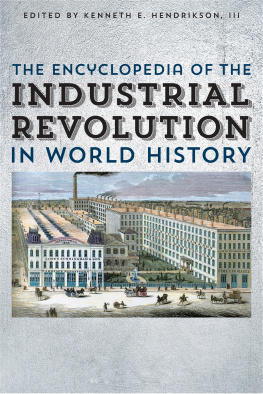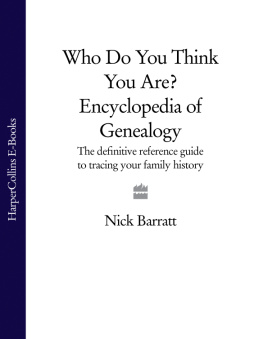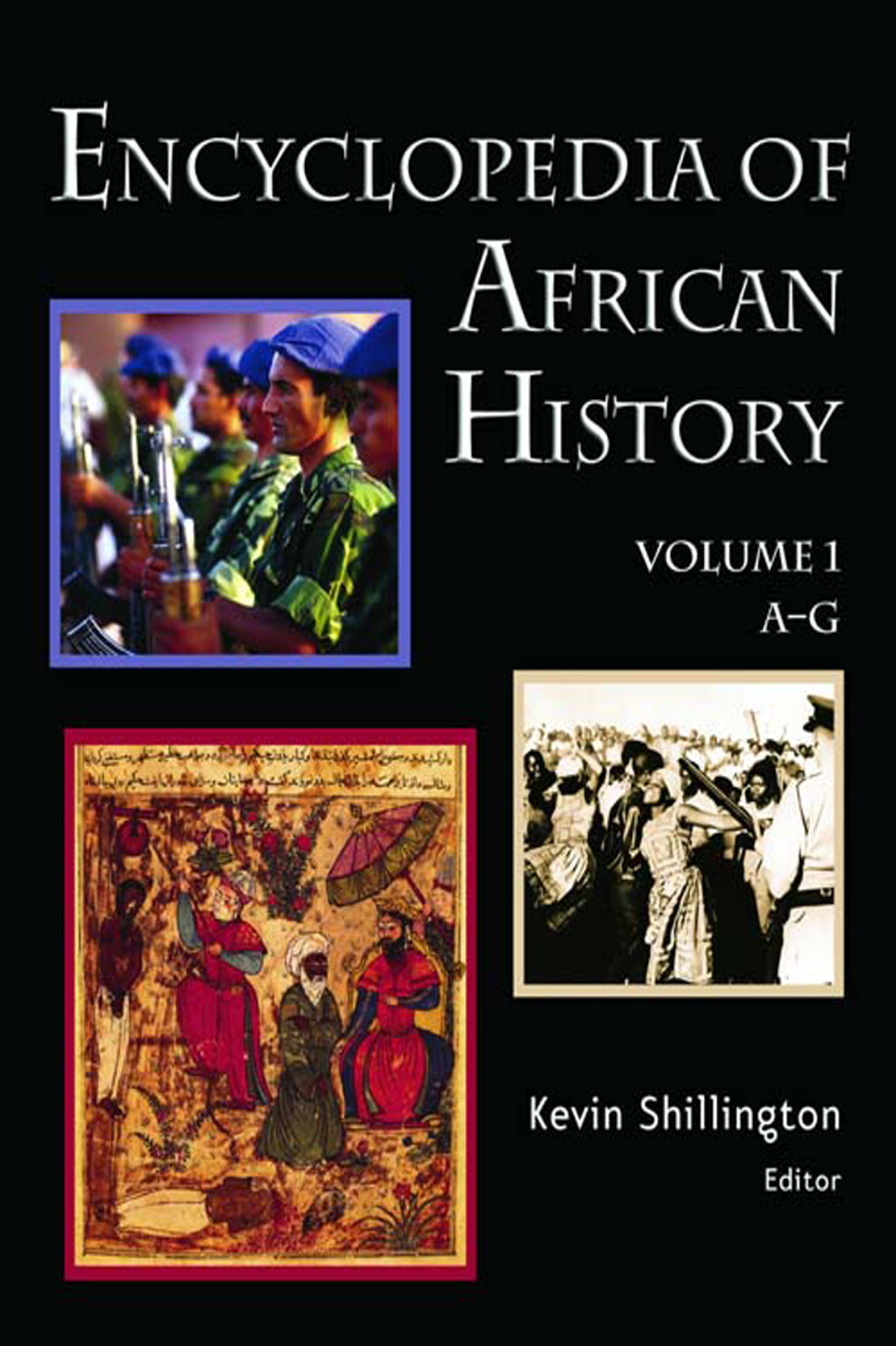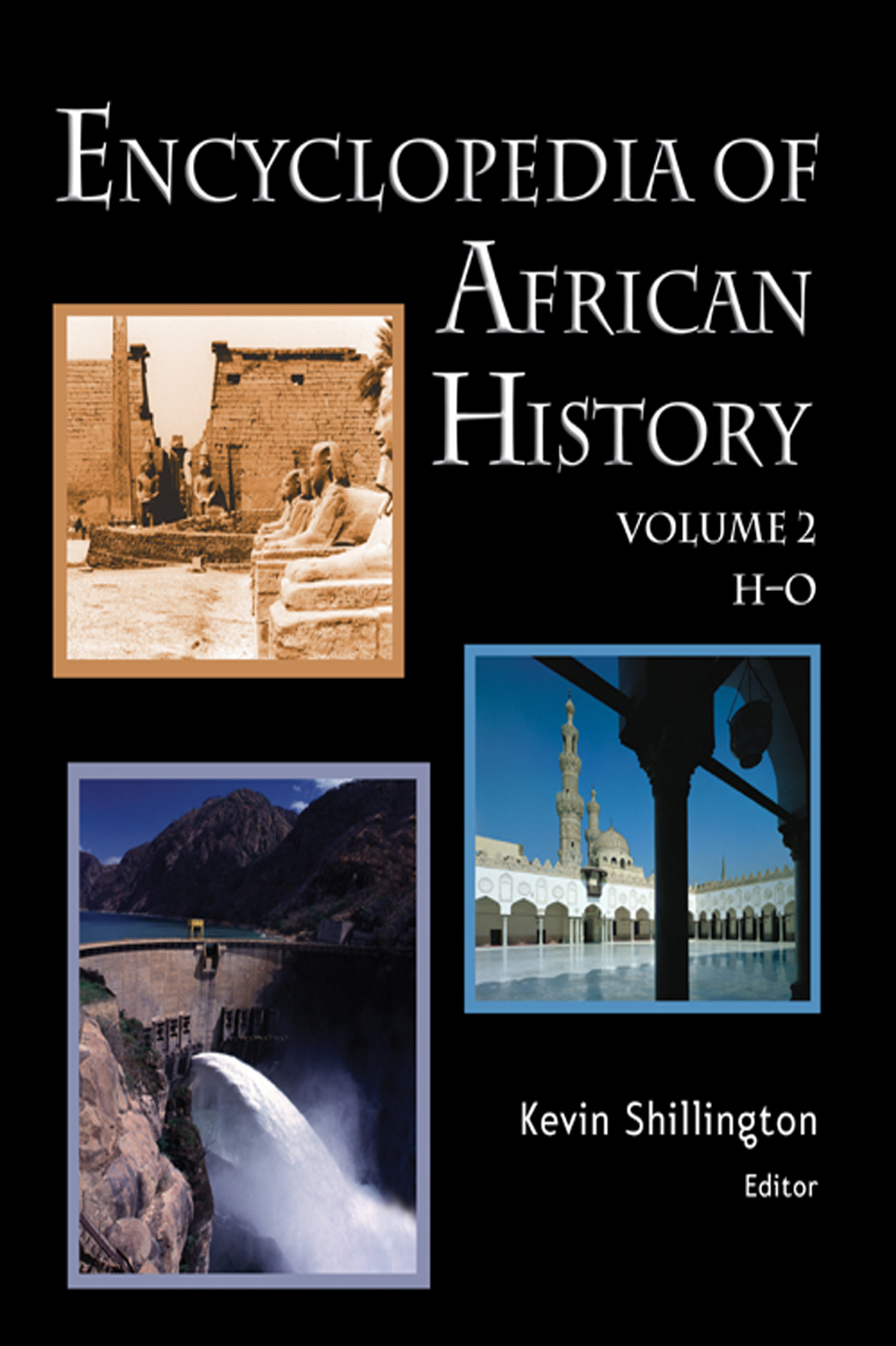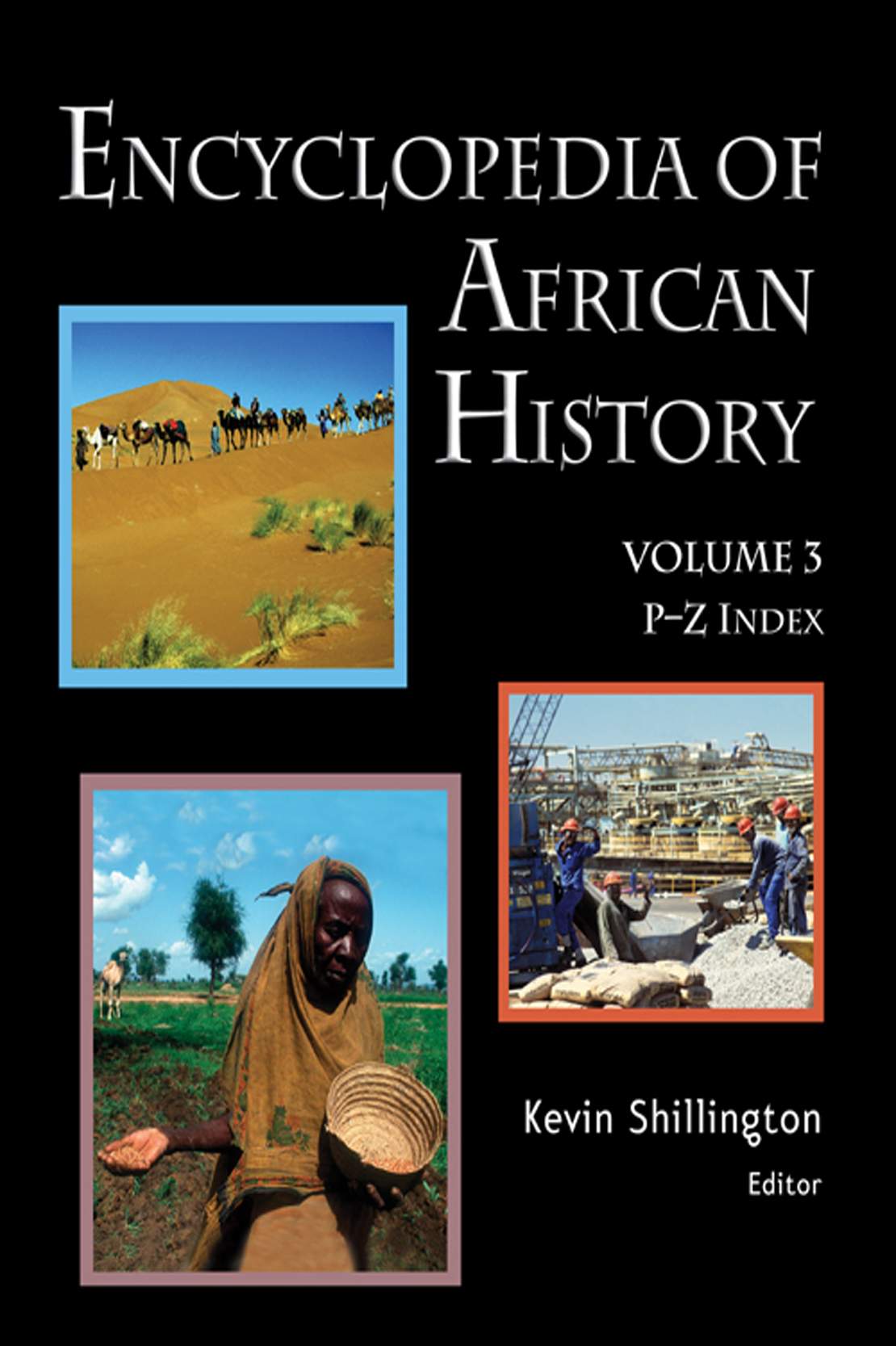ENCYCLOPEDIA OF
AFRICAN HISTORY
BOARD OF ADVISORS
Jacob F.Ade Ajayi
Professor Emeritus, Department of History
University of Ibadan, Nigeria
David M. Anderson
St. Antony's College, University of Oxford, England
Guy Arnold
Writer and lecturer, London, England
A.Adu Boahen
Professor Emeritus, Department of History
University of Ghana
Philip L.Bonner
Department of History
University of Witwatersrand, Republic of South Africa
Michael Brett
Department of History
School of Oriental and African Studies, London, England
Catherine Coquery-Vidrovitch
Laboratoire Socits en development dans l'espace et les temps
Universit de Paris VII-Denis Diderot, France
John Fage
Centre for West African Studies, University of Birmingham
Toyin Falola
Department of History
University of Texas, Austin
Richard Gray
Emeritus, University of London
Mark Horton
Department of Archaeology
University of Bristol, England
David Kiyaga-Mulindwa
University of Makerere (Uganda)
Nehemia Levtzion
Department of History
Hebrew University of Jerusalem
Paul E.Lovejoy
Department of History
University of York, Toronto, Canada
Mahmood Mamdani
Department of Anthropology
Columbia University, New York
Shula Marks
Professor Emeritus
School of Oriental and African Studies, London, England
John Middleton
Suzanne Miers
Professor Emeritus, Department of History
Ohio University, Athens
Malyn Newitt
Department of Portuguese and Brazilian Studies
King's College (London, England)
Bethwell A.Ogot
Institute of Research and Postgraduate Studies
Maseno University College, Kenya
Roland Oliver
Emeritus, University of London
Jack D.Parson
Department of Political Science
College of Charleston, South Carolina
Neil Parsons
Department of History
University of Botswana
John Peel
Department of Anthropology and Sociology
School of Oriental and African Studies, London, England
David W.Phillipson
Museum of Archaeology and Anthropology
University of Cambridge, England
Richard Rathbone
Department of History
School of Oriental and African Studies, London, England
Andrew Roberts
Emeritus, University of London
Jan Vansina
Professor Emeritus, Department of History
University of Wisconsin-Madison
Joseph O.Vogel
Professor Emeritus, Department of Anthropology
University of Alabama, Tuscaloosa
Tom Young
Department of Political Studies
School of Oriental and African Studies, London, England
ENCYCLOPEDIA OF
AFRICAN HISTORY
VOLUME 13
AZ INDEX
Kevin Shillington, Editor
Fitzroy Dearborn
An Imprint of the Taylor & Francis Group
New York London
ENCYCLOPEDIA OF
AFRICAN HISTORY
VOLUME 1
AG
Kevin Shillington, Editor
Fitzroy Dearborn
An Imprint of the Taylor & Francis Group
New York London
ENCYCLOPEDIA OF
AFRICAN HISTORY
VOLUME 2
HO
Kevin Shillington, Editor
Fitzroy Dearborn
An Imprint of the Taylor & Francis Group
New York London
ENCYCLOPEDIA OF
AFRICAN HISTORY
VOLUME 3
PZ INDEX
Kevin Shillington, Editor
Fitzroy Dearborn
An Imprint of the Taylor & Francis Group
New York London
Published in 2005 by
Fitzroy Dearborn
Taylor & Francis Group
270 Madison Avenue
New York, NY 10016
Copyright 2005 by Taylor & Francis Group, a Division of T&F Informa.
Fitzroy Dearborn is an imprint of the Taylor & Francis Group.
Printed in the United States of America on acid-free paper.
All rights reserved. No part of this book may be reprinted or reproduced or utilized in any form or by any electronic, mechanical, or other means, now known or hereafter invented, including photocopying and recording, or in any information storage or retrieval system, without permission in writing from the publishers.
10 9 8 7 6 5 4 3 2
Library of Congress Cataloging-in-Publication Data
Encyclopedia of African history/Kevin Shillington, editor.
p. cm.
Includes bibliographical references and index.
ISBN 1-57958-245-1 (alk. paper)
1. AfricaHistoryEncyclopedias. I. Shillington, Kevin.
DT20.E53 2004
960.03dc22
2004016779
CONTENTS
LIST OF ENTRIES A-Z
(with chronological sublistings within nation/group categories)
Angola: Peace Betrayed, 1994 to the Present
Central Africa, Northern: Islam, Pilgrimage
Diagne, Gueye, and Politics of Senegal, 1920s and 1930s
Equatorial Guinea: Independence to the Present
Libya: Italian Colonization and Administration
LIST OF ENTRIES: THEMATIC
Early Prehistory
Later Prehistory and Ancient History
Ramses II
Iron Age to End of the Eighteenth Century: Central and Southern Africa
Iron Age to End of Eighteenth Century: Eastern and North Central Africa
Massawa, Ethiopia and the Ottoman Empire
Iron Age to End of Eighteenth Century: North Africa
Iron Age to End of Eighteenth Century: Western Africa
Asante Kingdom: Osei Tutu and Founding of
Beginnings of European Imperialism
Antislavery Movement
Antislavery Squadron, Decline of Export Slave Trade, Nineteenth Century
The Scramble
Egypt, North Africa: Scramble
Era of Colonialism
Nineteenth and Twentieth Centuries: Histories of Modern States
Jonathan, Chief Joseph Leabua
Libya: Italian Colonization and Administration
Mauritius: 1982 to the Present
Rudd Concession, 1888
Swaziland: Concessions, Annexation, 18801902
Zimbabwe: Nineteenth Century, Early
Postcolonial Africa
Modern Cities of Historical Importance
Historiographical Surveys
Outlines of Regional History
Pan-African Comparative Topics and Debates
INTRODUCTION
African history as a modern academic discipline came of age in the 1950s, the decade of African nationalism that saw the parallel emergence of African institutions of higher education on the continent. The true origins of African higher education can be traced back many centuries to the Islamic universities of North Africa, Timbuktu, and Cairo, while the origins of recorded history itself are to be found in the scrolls of ancient Egypt, probably the oldest recorded history in the world. Beyond the reaches of the Roman Empire in North Africa, the tradition of keeping written records of events, ideas, and dynasties was followed, almost continuously, by the priests and scholars of ancient, medieval, and modern Ethiopia. Meanwhile, preliterate African societies recorded their histories in the oral memories and ancestral traditions that were faithfully handed down from generation to generation. Sometimes these were adapted to suit the political imperatives of current ruling elites, but as the modern academic historian knows only too well, the written record is similarly vulnerable to the interpretation of the recorder.

